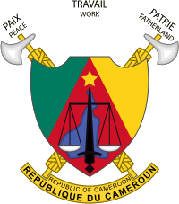In conjunction with the international community, Cameroon celebrated the Global Entrepreneurship Week from the 23 to 27 November under the theme “Entrepreneurship: a tool for inclusive and sustainable development”. In preparation for this 2nd edition, Achille BASSILIKEN III, the Minister of Small and Medium-sized Enterprises, Social Economy and Handicrafts made a press briefing on 24th November 2020 at the meeting hall of the Ministerial building to unveil the agenda of activities to be carried out in the course of the week.
The activities were thus focused on the relationship between entrepreneurial education and governance, as well as on the means available to support structures to coach young entrepreneurs with a view to the inclusive and sustainable development of their businesses. Pending the integration of an “entrepreneurship” module in the school curriculum, the week will also be an opportunity for the youngest pupils in secondary schools and colleges to deepen and display their entrepreneurial know-how developed in the clubs set up for this purpose. In addition, conferences/debates and round tables will be organised during which the testimonies of entrepreneurs will be shared for future concerted and efficient actions. The week is also an opportunity for entrepreneurs to exchange on the adequate and effective means to meet the challenges marked by the Covid-19 pandemic, which requires them to be more imaginative and inventive.
The Minister, accompanied by the Secretary General and the staff of the central services, will, among other things, visit the Technical High School of Nkolbisson to appreciate the entrepreneurial genius of the children in abundance, and to the KIAMA company specialised in the production of applications and software. The week will close at the Yaounde International Handicraft Centre on 27 November 2020 with a round-table discussion during which exchanges will focus on the sub-themes: “Counting with CEMAC women entrepreneurs to accelerate sub-regional integration”, “Supporting youth entrepreneurship for a rapid post-COVID economic recovery” and “Decentralisation, an instrument for promoting local entrepreneurship”.
In addition to the activities organised at the central level, the divisional and regional delegations will also be deployed in the field. Thus, are announced the awareness-raising and education campaigns in high schools and colleges, the promotion of entrepreneurial and handicraft products through the organisation of exhibition/sales fairs, conferences, debates, round tables, the dissemination of information and awareness messages on the missions, achievements and opportunities offered by MINPMEESA to its various targets, and awareness and popularisation campaigns on entrepreneurial culture. This divisional dynamism will be demonstrated in Mfoundi, Wouri, Mifi, Mefou Afamba, Vina, Mayo-Tsanaga, Moungo and Ocean, under the chairmanship of the personal representatives of the Minister, regional and divisional delegates.
Having taken note of the agenda, the journalists asked some series of questions to Minister Achille BASSILEKIN III, notably on the support provided by his ministerial department to SMEs during Covid-19. The Minister, insisting on the topicality around this issue, indicated that the list of enterprises definitively selected throughout the country, and which should benefit from the support of 2 billion under the Economic Recovery Fund for the benefit of the productive sector hard hit by Covid-19, will be published shortly by way of a press release. He then indicated that “out of 1,171 applications received from the stricken SMEs, craftspeople and promoters of Social Economy organisations, 720 applications have been selected”. Asking for a better understanding of the State’s support strategy, a journalist seemed to be concerned by the fragmentation of resources to the benefit of a large number of companies. She especially wanted to know if it would not be more efficient to consider in the future substantial support for an even smaller number of companies in order to have a better economic impact. The Minister reacted by indicating that in “the National Development Strategy 2020-2030, there is a whole pillar that deals with the support of “national champions” identified according to sectors”. These will receive sufficient resources to position themselves as companies that will not only be able to meet the needs of the populations, but will also be better able to compete internationally in the goods and services produced.

